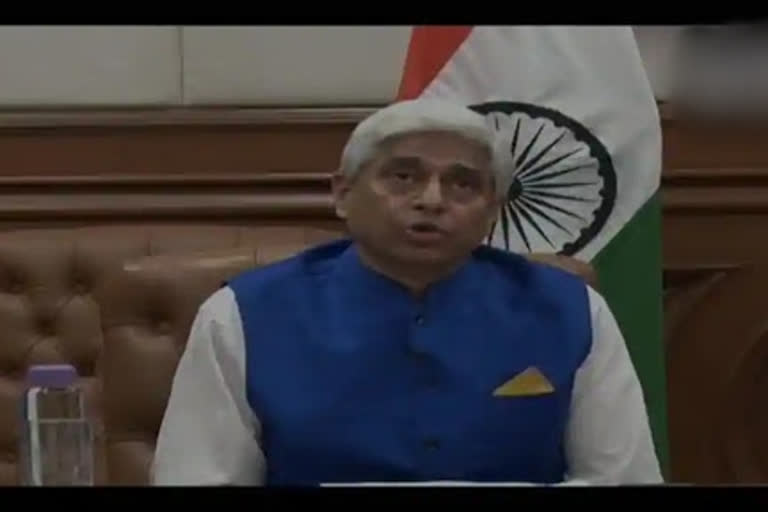New Delhi: Hours after getting elected to the UN Security Council, India on Thursday said enhancing counter terrorism action by the powerful UN body and depoliticising the process of putting sanctions on terror entities will be among its top priorities.
India was overwhelmingly elected as a non-permanent member of the powerful UN Security Council for a two-year term in an unprecedented election, in which envoys from the 192 member states voted wearing masks and in adherence to strict social distancing norms in view of the COVID-19 pandemic.
Briefing the media on India's election to the UN body, Secretary West in the Ministry of External Affairs, Vikas Swarup, said the country looks forward for being the voice for all those who are not represented on the Council.
He said this was one of India's best performance in the UNSC elections as the country, the endorsed candidate from the Asia-Pacific States, won 184 votes out of the 192 ballots cast in the elections for the five non-permanent seats of the Security Council.
Talking about the priorities of India as a member of the UNSC, he said enhancing counter terrorism action by the UNSC is one of the main priorities for the country.
"Earlier also, when India was a member of the Security Council during 2011-12, we had chaired the United Nations counter terrorism committee and had brought in the concept of ''zero tolerance to terrorism''," Swarup said.
During the coming term, India will work to enhance global action against terrorism, their supporters and sympathisers, and safe havens by seeking the streamlining of the process of putting sanctions on terrorists and terrorist entities, he said.
"The process of sanctioning also needs to be depoliticised as there is no justification of any act of terrorism," Swarup said.
India will also work for the early finalisation of the Comprehensive Convention on International Terrorism, which India had proposed way back in 1996, he said.
Asked if a Pakistani representative had raised a bilateral issue at the multilateral forum and politicised the platform, Swarup said this is the kind of behaviour "we have been seeing from Pakistan over the past many months and years".
